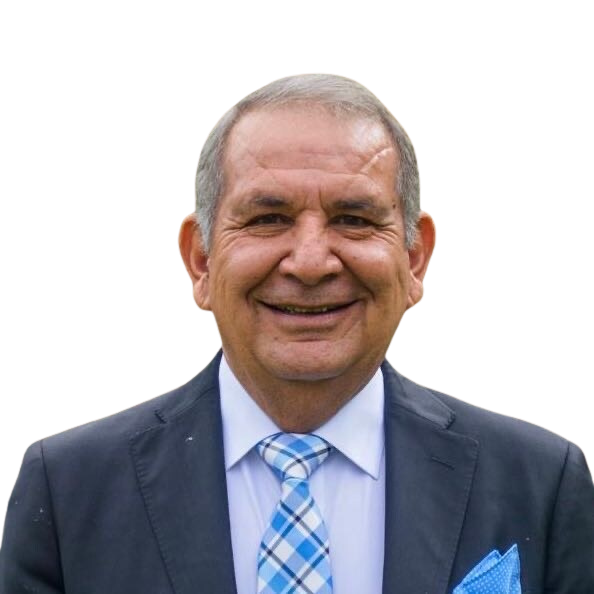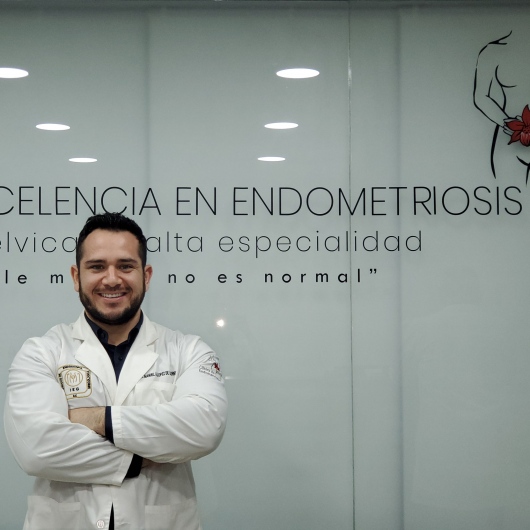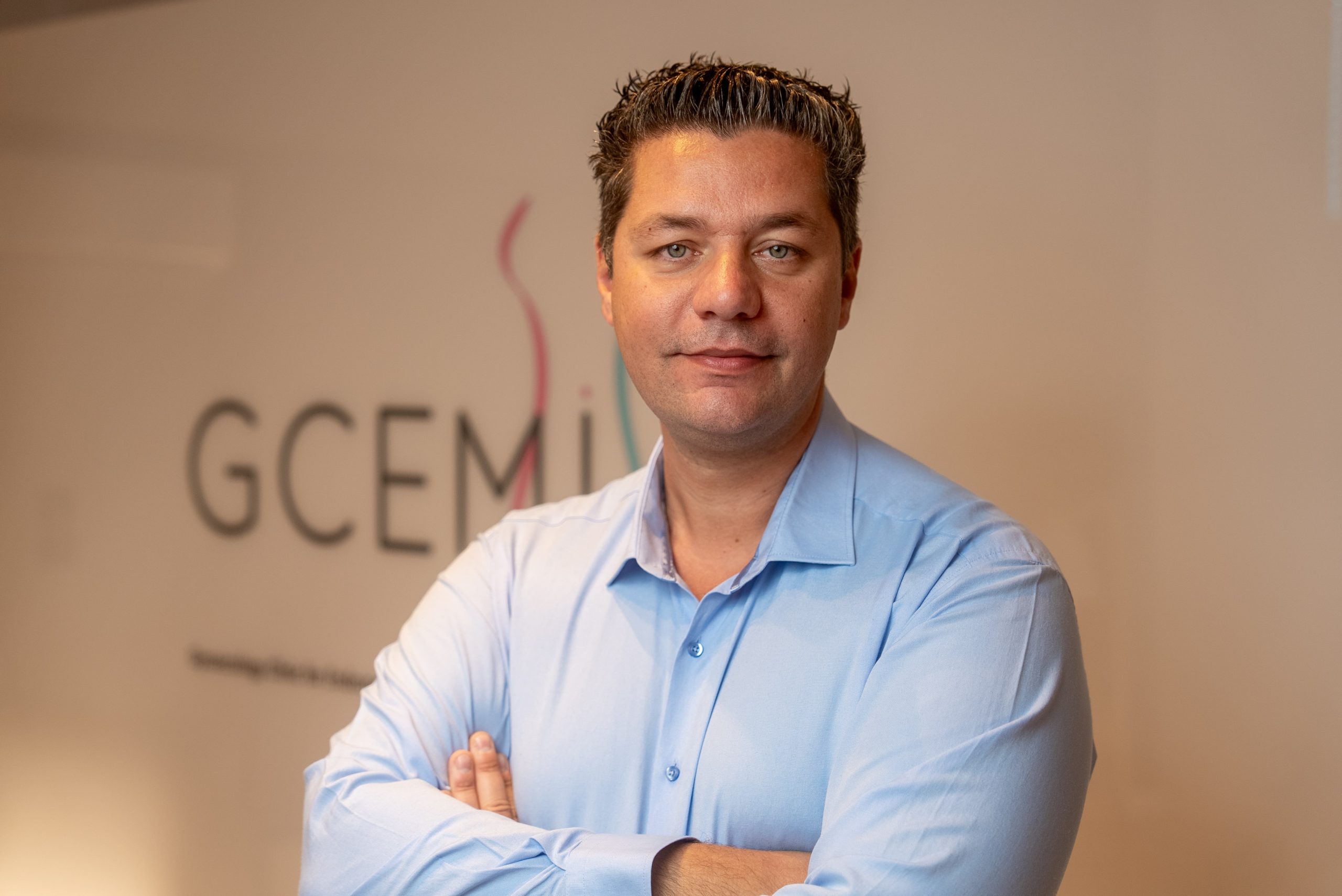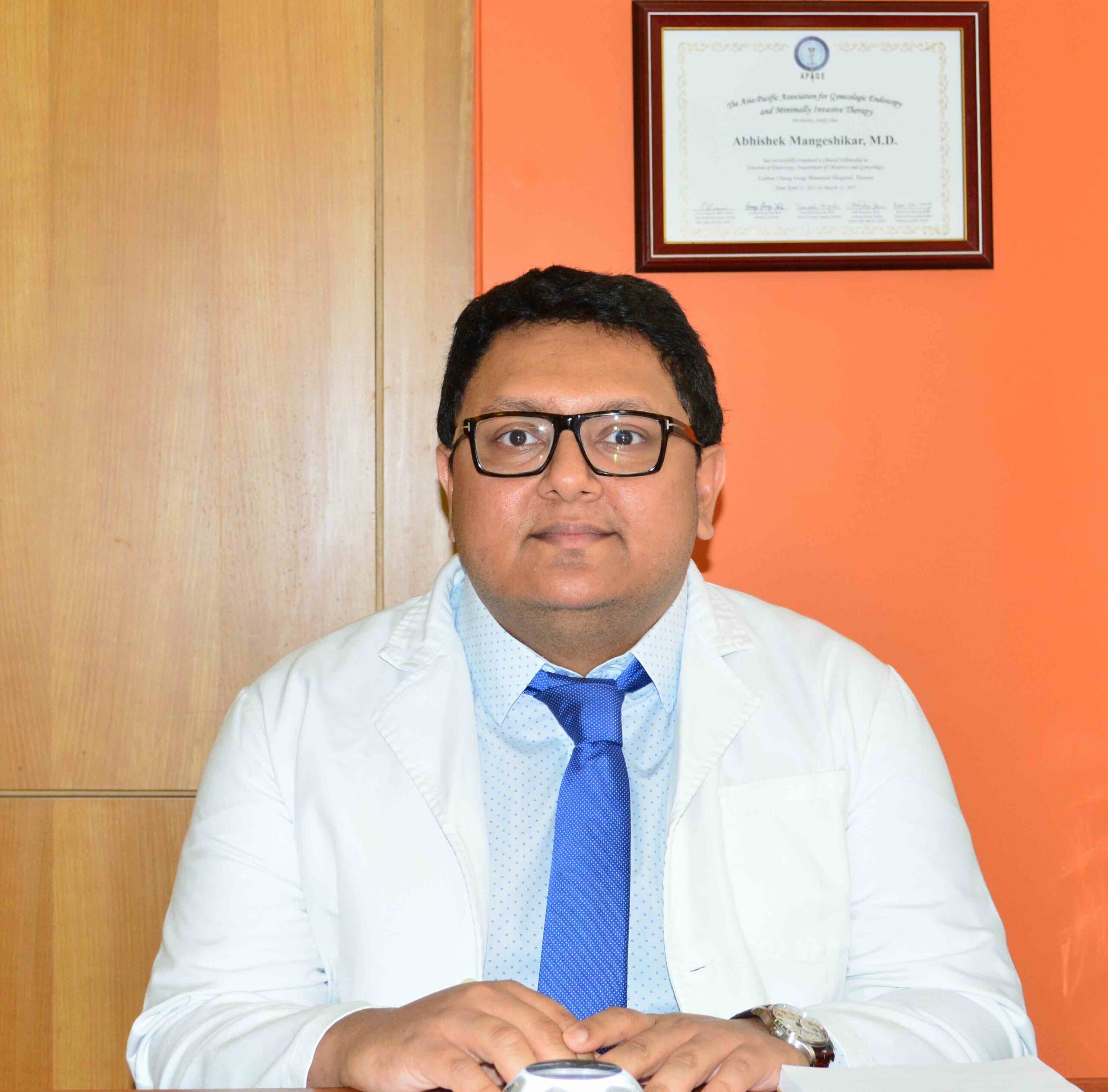
Dr. Jurgis Vitols
Dr. Jurgis Vitols, Endometriosis Specialist
City: Riga, Latvia
Philosophy of Endometriosis Care: Genetic – epigenetic theory.
What type of surgery do you perform for endometriosis: Excision; Both. I may use ablation only for ovarian cysts. For ovarian endometriosis, I may use laser vaporization on the hilum of the capsule or for all of the cyst capsules in case the cyst enucleates badly and there is a high risk of damage to normal ovarian tissue. My preferred approach for ovarian cysts is cystectomy.
Medication: Depends on the patients wishes and complains. For patients who doesn’t want to have surgery, I recommend use of combined oral contraceptive pills or progesterone pills. If symptoms persist, I recommend surgical treatment. After surgery, I recommend long-term use of combined oral contraceptive pills or progesterone pills for patients who don’t wish to become pregnant and have had ovarian endometrioma – to reduce recurrence. For patients who wish to become pregnant after surgery, sometimes I recommend short use (maximum for 3-4 months) of GnRH analogs or GnRH antagonists to improve their chance of having a natural conception. I never prescribe long-term use of GnRH medication.
Approach to Persistent Pain After Surgery: Combined oral contraceptive pills or progesterone pills. Suppose this doesn’t help—pregabalin or amitryptiline. Patients with persistent pain symptoms are referred to pain specialists.

Dr. Liliana Puycan
Dr. Liliana Puycan
Dr Liliana Puycan – Endometriosis Specialist
Summary: Dr Liliana Puycan is a dedicated endometriosis specialist based in Lima, Peru. With a patient-centered approach, Dr Liliana Puycan focuses on the coelomic metaplasia and immunological theories, emphasizing how inflammation and immune responses contribute to endometriosis. She combines expert excision surgery with holistic care that includes progestin or bioidentical hormone therapy, lifestyle changes, and anti-inflammatory nutrition. Dr Liliana Puycan takes a comprehensive view of treatment, before and after surgery, encouraging physical activity, reduction of endocrine disruptors, and management of visceral fat to address hyperestrogenism and improve long-term outcomes. Her commitment to whole-patient care and thoughtful attention to individual needs makes Dr Liliana Puycan a trusted resource for those navigating the complexities of endometriosis.
City: Lima, Peru
Philosophy of Endometriosis Care: The theories of endometriosis that focus my treatment are the theory of coelomic metaplasia and the immunological theory since I think that the disease grows or proliferates in an inflammatory-immune environment, originating in certain patients susceptible to the disease.
What type of surgery do you perform for endometriosis: Excision
Medication: I begin treatment with the use of progestins and/or bioidentical progesterone, in addition to changes in nutrition and lifestyle to reduce the inflammatory effect of the disease.
Approach to Persistent Pain After Surgery: Before the surgical treatment, I made sure that the patient had already started a complete diet and physical activity regimen, which would continue postoperatively. Understanding the importance of reducing the intake of endocrine disruptors and reducing the percentage of visceral fat that leads to hyperestrogenism is essential for the long-term management of this type of patient.

Dr. Marco Antonio Lopez Zepeda
Dr. Marco Antonio Lopez Zepeda
Doctor Zepeda – Endometriosis Specialist
Summary: Dr Zepeda, is a highly regarded endometriosis specialist based in Guadalajara, Jalisco, Mexico. With extensive expertise in excision surgery, Dr Zepeda is committed to providing personalized care rooted in leading theories of endometriosis, including retrograde menstruation and coelomic metaplasia. Doctor Zepeda tailors treatment plans based on each patient’s symptoms, fertility goals, and IDEA Protocol results, ensuring thoughtful, patient-centered solutions. He utilizes a range of medical therapies such as Dienogest, GnRH analogs, anovulatory agents, and progestins to support healing and pain management. For those experiencing persistent pain after surgery, Dr Zepeda focuses on individualized care strategies that consider long-term health and well-being. With a warm, professional approach and a deep understanding of endometriosis, Dr Zepeda offers trusted expertise to patients seeking relief and improved quality of life.
City: Guadalajara, Jalisco, Mexico
Philosophy of Endometriosis Care: Retrograde Menstruation (Sampson Theory), Celomic Metaplasie (Iwanoff and Meyer Theory), Linfatic or Vascular Dissemination, and Embryonic Remains Theory.
What type of surgery do you perform for endometriosis?: Excision
Medication: Dianogest, GnRh Analogs, Anovulatories, Progestins
Approach to Persistent Pain After Surgery: Depends on the patient´s symptoms, desire for childbearing, and the results of the IDEA Protocol.

Dr. Juan Carlos Canton Romero, PhD MD
Dr. Juan Carlos Canton Romero, PhD, MD
Dr Juan Carlos Canton Romero – Laparoscopic Surgeon, Endometriosis Specialist
Summary: Dr Juan Carlos Canton Romero is a leading endometriosis specialist and laparoscopic surgeon based in Guadalajara, Mexico. Known for his personalized, compassionate care, he uses a patient-centered approach grounded in the Mullerianosis theory. With expertise in minimally invasive procedures, Dr Juan Carlos performs excision surgeries tailored to each patient’s age, fertility goals, and disease stage. He also manages symptoms with medications like dienogest, GnRH inhibitors, and oral contraceptives. For persistent pain after surgery, Dr Juan Carlos recommends a holistic plan that may include physiotherapy, yoga, and ongoing hormonal support. Patients value his commitment to preserving fertility when possible and his thoughtful, evidence-based care. With Dr Juan Carlos, individuals experiencing endometriosis can expect clear communication, tailored treatment, and support throughout their healing journey. Whether seeking surgical expertise or long-term symptom relief, Dr Juan Carlos provides the experience and empathy patients need to feel heard and supported.
City: Guadalajara, Jalisco, Mexico
Philosophy of Endometriosis Care: Mullerianosis
What type of surgery do you perform for endometriosis?:
Ovarian ablation in young patients to preserve hormonal function and uterine in those who wish to preserve fertility; ovarian resection in postmenopausal patients. Uterine resection is for those who do not wish to preserve fertility. In patients with early-stage cancer with a good prognosis of the ovary and cervix and a desire to preserve fertility, conservative surgery was performed.
Medication: Oral analgesics, antispasmodics, prostaglandin inhibitors AINES, continuous oral contraceptives with Dienogest (Qlaira), continuous dienogest, GnRH inhibitors for 3–6 months, and Levonorgestrel IUD.
Approach to Persistent Pain After Surgery: Physiotherapy, rehabilitation, exercise like yoga, continuous contraceptives, and/or dienogest.

Dr. Ulises Armando Menocal Tavernier
Dr Ulises Armando Menocal Tavernier
Dr Ulises Armando Menocal Tavernier – Endometriosis Specialist, Gynecologist, Minimally Invasive Gynecologic Surgeon
Summary: Dr Menocal is a highly skilled endometriosis specialist and gynecologist based in Morelia, Michoacán, Mexico. As a minimally invasive gynecologic surgeon, Dr Menocal provides personalized and compassionate care to women suffering from endometriosis. His approach to the condition is grounded in the coelomic metaplasia theory and the endometrial stem cell recruitment theory, which helps inform his treatment strategy.
Dr Ulises Armando Menocal Tavernier utilizes a range of treatments, including combined oral contraceptives for young women and Dienogest following surgery, to manage symptoms and improve quality of life. For patients with persistent pain after surgery, Dr. Menocal follows a multidisciplinary approach, collaborating with nutritionists, psychologists, and pelvic rehabilitation specialists. In some cases, he may recommend a second-look laparoscopy to assess the effectiveness of treatment.
City: Morelia, Michoacan, Mexico
Philosophy: Coelomic metaplasia
Medication: Combined oral contraceptives in young women for a period of 6 months up to 5 years
Approach to Persistent Pain After Surgery: Patients will remain in a multidisciplinary approach with a nutritionist, psychologist, and pelvic rehabilitation. And in some patients, we will perform a second-look laparoscopy.

Dr. Manuel Lopez
Dr. Manuel Antonio Lopez de la Torre, M.D.
Dr Manuel Lopez – Endometriosis Specialist, Gynecologist, Minimally Invasive Gynecologic Surgeon
Summary: If you’re looking for expert care in endometriosis, Dr Manuel Lopez is a trusted and compassionate specialist dedicated to helping women live healthier, more comfortable lives. Many patients first discover Dr. Manuel Lopez while searching for top gynecologists under names like Manuel Lopez MD San Antonio or Doctor Manuel Lopez, drawn by his excellent reputation. Though based in Guadalajara, Jalisco, Mexico, Dr. Manuel A Lopez MD San Antonio TX is well known to U.S. patients who travel for his expert care in minimally invasive gynecologic surgery.
Dr. Lopez takes a thoughtful, individualized approach to endometriosis, grounded in both medical science and empathy. He draws on a range of theories, including celomic metaplasia, retrograde menstruation, lymphatic and vascular dissemination, and embryonic origins, as well as genetic and immunological factors, to inform his care.
For treatment, Dr. Lopez typically begins with combined progestins, followed by pure progestins if needed, and rarely, GNRH analogues with add-back therapy. Pain is managed with COX inhibitors, NSAIDs, smooth muscle relaxants, and supportive treatments like multivitamins.
What truly sets Dr. Manuel Lopez apart is his conservative and holistic approach to surgery, which is only recommended for about 30% of patients. His multidisciplinary team includes experts in colorectal surgery, fertility, urology, physical therapy, psychology, nutrition, pain management, and sexology to ensure patients receive well-rounded care.
City: Guadalajara, Jalisco, Mexico
Philosophy:
Medication:
Approach to Persistent Pain After Surgery:
When needed, the treatment always starts BEFORE the surgery, and SURGERY is indicated only in approximately 30% of our total amount of patients. Generally, most of the indications for surgical procedures depend on adhesions, anatomical changes due to nodules or adhesions, deep infiltrating nodules affecting the organs functional tissue(Muscular layers), adenomyosis. We always perform an integral follow-up on patients. Our clinic is constituted by multiple specialties, and we derive before surgery to the affected areas to deep study. When the symptoms continue, depending on the area, they get treated by whoever is demanded (Colo- proctology, Fertility, Urology, Physical Therapy, Psychology/Psychiatry, Nutrition, Pain specialist, Sexology).

Dr. Luky Satria
Dr. Luky Satria, M.D.
Jakarta Doctor, Dr Luky Satria – Endometriosis Specialist, Gynecologist, Minimally Invasive Gynecologic Surgeon
Summary: Dr. Luky Satria is a highly respected Jakarta doctor specializing in endometriosis care and minimally invasive gynecologic surgery. Patients seeking expert, compassionate care often turn to Dr. Luky Satria for a personalized treatment plan that balances medication, surgery, and fertility considerations. His approach begins with hormonal therapy to manage endometriosis-related pain, reserving surgery for cases where medication is ineffective or when fertility outcomes can be improved.
Known for his thoughtful and evidence-based methods, Dr. Satria carefully evaluates each patient’s condition using imaging tools like ultrasound or MRI to guide the next steps. Postoperative care often includes continued hormonal treatment to reduce recurrence and support long-term well-being. As a trusted Jakarta doctor, Dr. Luky Satria is committed to delivering thorough, respectful care to every patient, tailoring his approach to meet their individual health and fertility goals.
City: Jakarta, DKI Jakarta, Indonesia
Philosophy: Probably multifactorial, coelomic metaplasia and retrograde menstruation combined with genetic-epigenetic factor
Medication: I use medication/ hormonal (progestin or LNG IUS) as the first-line treatment for endometriosis-associated pain, when the hormonal failed then complete excision surgery will be done. I also give hormonal treatment to patients waiting for surgery.
Hormonal treatment is also given to post-operative patients who don’t seek fertility to reduce recurrence risk.
Approach to Persistent Pain After Surgery: Systematic mapping with ultrasound (or MRI when needed) will be done to search for residual lesions (due to incomplete surgery) or de novo lesions. Surgery will be done when we find DIE lesions, but if it is ovarian lesions (endometrioma), I will suggest hormonal treatment or ART since repeat surgery of recurrent endometrioma will give a bad prognosis in ovarian function, especially in subfertility patients.

Dr. Maria Victoria Vargas
Dr. Maria Vargas, M.D.
Victoria Vargas – Gynecologist, Minimally Invasive Gynecologic Surgeon
Summary: Victoria Vargas MD, also known as Dr. Vargas OBGYN, is a skilled gynecologist and minimally invasive gynecologic surgeon based in Washington, D.C. Specializing in endometriosis, Dr. Maria Vargas combines a deep understanding of the disease’s complex nature with a patient-centered approach to care. She emphasizes the multifactorial origins of endometriosis, incorporating the latest research, including the Mulleriosis theory, to offer individualized treatment options.
Dr. Vargas provides comprehensive care, including hormonal therapies like combined oral contraception and the levonorgestrel-releasing IUD, tailored to each patient’s needs. She also focuses on managing persistent pain post-surgery, offering non-narcotic solutions such as nerve blocks, acupuncture, and pelvic floor physical therapy. Whether through lifestyle recommendations or advanced surgical techniques, Dr. Vargas helps her patients improve their quality of life with personalized, holistic care.
City: Washington DC, USA
Philosophy: Endometriosis is a complex disease and its etiology appears to be multifactorial. Currently, Mulleriosis seems to be the most accepted theory of origin. Unfortunately, we still lack understanding about the full spectrum of the disease, which includes a self-sustaining, highly inflammatory environment with the capacity to promote its own nerve and blood supply. There seems to be a hereditary component, and increasingly, we are defining somatic mutations common to endometriosis lesions. Given the many unknowns regarding endometriosis, I focus my practice on ensuring patients understand the complexity of the disease and try to develop an individualized approach based on each patient’s preferences and circumstances.
Medication: Depending on my patient’s preferences and needs, I offer hormonal suppressive therapy, including combined oral contraception, oral progestin medication, and the levonorgestrel-releasing IUD. I typically recommend extended-cycle dosing or continuous dosing of oral medications to achieve amenorrhea. In some cases, when patients don’t have sufficient improvement with hormonal suppression or when they don’t tolerate or are opposed to hormonal suppression, I may also recommend NSAIDs, gabapentin, or SNRIs.
Approach to Persistent Pain After Surgery: I bring up the possibility of residual pain before the surgery takes place so patients understand that there may be ongoing treatment beyond the recovery from surgery. I follow patients closely after surgery to ensure that they are able to achieve a maximal improvement in quality of life. If residual pain is present, I consider the possibility of co-morbidities, such as pelvic floor dysfunction and painful bladder syndrome. When appropriate I refer to my colleagues in pelvic floor physical therapy, pain management, and urology. I do promote a focus on non-narcotic options for residual pain, such as nerve blocks, trigger point injections, acupuncture, and TENS therapy. I also encourage mindfulness and meditative practices. I utilize hormonal suppressive therapy when appropriate as well. Rarely, I discuss second-look surgery as an option. I find that the vast majority of my patients achieve a positive outcome with this approach.

Dr. Konstantinos Kyriakopoulos
Konstantinos Kyriakopoulos, M.D.,
Dr Konstantinos Kyriakopoulos – Endometriosis Specialist, Minimally Invasive Gynecologic Surgeon
Summary: Dr Konstantinos Kyriakopoulos, MD., is a highly skilled endometriosis specialist and minimally invasive gynecologic surgeon based in Athens, Greece. With extensive expertise in treating endometriosis, Dr Kyriakopoulos believes in a multifactorial approach to the disease, considering genetic and epigenetic factors. He is committed to offering personalized care through complete excision surgery, which he believes provides the best outcomes for pain relief and fertility preservation. At Mediterraneo Hospital Glyfada Greece, Dr Kyriakopoulos focuses on ensuring optimal results with minimal recurrence rates, reserving medication like contraceptives and progesterone for specific cases. For patients dealing with persistent pain after surgery, he takes a comprehensive approach, collaborating with a pain management team and utilizing physiotherapy, nerve blocks, and anti-inflammatory treatments when needed.
City: Athens, Greece
Philosophy: Even though endometriosis is a prevalent and unique disease, its pathophysiology stills remains a mystery. I believe that this disease is multifactorial. Moreover, I firmly believe in genetic and epigenetic factors contributing to endometriosis. Hopefully, with the progress in bioinformatics, we will eventually have more valuable information regarding the onset and course of that disease.
Medication: In my practice, I firmly believe that excision surgery is crucial. Complete excision of all the endometriotic lesions gives far better results in controlling pain or sustaining fertility and lower recurrence rates than medication use. I believe that suppression after excisional surgery is unnecessary unless the excision was incomplete. Medication like contraceptive pills, progesterone supplements, or GNRH analogs in my practice is reserved for women who want to control pain until the day of the operation or for patients that want to control pain but definitely avoid surgery. In cases of adenomyosis, I recommend the use of Mirena coil.
Approach to Persistent Pain After Surgery: Patients are followed up closely after operations.
That way, we can monitor their progress. If symptoms persist, evaluation for other causes of pain is undertaken, referral to the pain management team, and physiotherapy. Anti-inflammatory drugs and nerve blocks can be beneficial in situations where symptoms persist.

Dr. Shanti Mohling
Shanti Mohling, M.D.
Dr Shanti Mohling – Endometriosis Specialist, Minimally Invasive Gynecologic Surgeon
Summary: Dr Shanti Mohling, an experienced endometriosis specialist based in Portland, OR, takes a multifaceted approach to treating pelvic pain and endometriosis. Dr Mohling believes endometriosis originates during embryogenesis, and hormonal changes at menarche trigger its progression. Her philosophy combines a deep understanding of the condition’s genetic and environmental factors. With a focus on complete excision, Dr Mohling works to arrest the disease and improve her patients’ quality of life. She offers various hormonal therapies, including progestin-only contraceptives and bioidentical hormone therapy for surgical menopause patients. For pain management, she uses a combination of NSAIDs, nerve modulation, and sometimes Botox for pelvic floor myalgia. Dr Mohling’s holistic approach also includes collaboration with specialists in areas like functional medicine, pelvic floor physical therapy, and nutritional support, making her a compassionate and thorough provider for patients seeking expert care for endometriosis.
Incorporating her expertise and dedication, Dr Shanti Mohling is a trusted name in Portland for patients looking for comprehensive care in treating endometriosis and pelvic pain.
City: Portland, OR, USA
Philosophy: I believe endometriosis has multifactorial origins. Regarding surgical management, I treat it as though its origin begins with development during embryogenesis as the müllerian system is migrating. I believe most patients with endometriosis are born with it and that it flourishes during menarche with advent of hormonal changes. I also believe that there is a component of environmental impact such that a patient with genetic predisposition (and abnormal cells from embryogenesis) may do worse with an inflammatory environment (foods, pollution, stress, etc.). However, I believe that complete excision should mostly arrest disease and my treatment is based on mullerianosis as the genesis.
Medication: I work with patients in a collaborative fashion to arrive at the best option for each individual.
Hormonal therapies: Progestin-only contraceptives, combination oral contraceptives, Levonorgestrel IUD, Nexplanon occasionally. I almost never offer Depo Medroxyprogesterone acetate (due to side-effects) or GnRH analogs (due to side-effect profile and long-term negative effects). I have worked with bioidentical hormone therapy for over 20 years and also incorporate that when appropriate, such as in patients who have undergone surgical menopause or patients who do not tolerate synthetic hormonal therapy.
For pain: NSAIDS, occasionally narcotics, naltrexone and occasionally Medical Marijuana when appropriate. Sometimes neuromodulators such as gabapentin and pregabalin. I often recommend amitriptyline, especially in the case of interstitial cystitis. Finally, I sometimes prescribe compounded vaginal suppositories which may include valium, baclofen or ketamine.
I also use Botox for pelvic floor myalgia on a routine basis.
Approach to Persistent Pain After Surgery: I believe most pelvic pain is multifactorial: endometriosis, interstitial cystitis, bowel dysfunction (to include IBS, SIBO, Intestinal Permeability, gastroparesis), myofascial pain and neuropathic pain. At the initial work-up, I attempt to identify each of these contributors. Yesterday, I saw a postop patient who had had extensive endometriosis excised and confirmed by pathology. She had persistent pain. We reviewed her history of bowel symptoms, history of schistosomiasis and giardia (she had worked in Africa) as well as an exam suggesting pelvic floor myalgia. She will now work with a functional medicine specialist and pelvic floor physical therapist. We also discussed hormonal options (progesterone has a distinct effect on gastric function). This is very typical of my approach.

Dr. Ma Li
Dr. Ma Li, M.D.
Dr Ma Li – Endometriosis Specialist, Minimally Invasive Gynecologic Surgeon
Summary: Dr Ma Li is a leading specialist in endometriosis care and minimally invasive gynecologic surgery based in Singapore. Known for her compassionate approach, Dr. Ma Li offers personalized treatment options for patients seeking expert support for endometriosis in Singapore. She specializes in both hormonal therapy and endometriosis surgery in Singapore, tailoring care based on each patient’s symptoms, fertility goals, and surgical history.
With a deep understanding of conditions like adenomyosis, IBS, and myofascial pain, Dr Ma Li takes a holistic view of persistent pelvic pain. She prioritizes accurate diagnosis, evidence-based treatments, and collaborative care with other specialists when needed. Whether it’s using hormonal management to prevent recurrence or performing advanced excision surgery, her focus is on long-term relief and quality of life. Patients trust Dr. Ma Li for her dedication and expertise in treating endometriosis in Singapore through both medical and surgical options.
City: Singapore, Singapore
Philosophy: Retrograde menstruation and metaplasia, hormone dependant.
Medication: Progesterone based (dienogest, depo-provers), Mirena, GnRha, oral contraceptive pills
1. I use hormonal suppression mostly for postop patients who don’t have a fertility plan, aiming to reduce the risk of recurrence.
2. young patient, low AMH, the trial of medical treatment, and monitor response.
Approach to Persistent Pain: 1. need to find out why pain persists. whether due to previous incomplete surgery, adenomyosis, or other reasons such as IBS, interstitial cystitis, myofascial pain syndrome, etc. and treat accordingly.
2. if due to incomplete surgery, depending on the location of the disease. If deep infiltrating endometriosis, I will suggest repeat surgery. if cyst recurrence, for a young patient, I will try hormonal treatment and see the response. If poor response, then repeats surgery.
If it’s due to adenomyosis, for patients with fertility requirements, I will try the hormonal treatment. For those who had completed family, and failed medical treatment, I will suggest a Total Laparoscopic Hysterectomy.
If it’s due to IBS, Interstitial Cystitis, or myofascial pain, I will refer other subspecialties accordingly.

Dr. Abhishek Mangeshikar
Abhishek Mangeshikar, M.D., Endometriosis Specialist, Minimally Invasive Gynecologic Surgeon.
City: Mumbai, Maharashtra, India.
Philosophy: A combination of mulleriosis and the genetic – epigenetic theory. During embryo formation and separation of the Mullerian system, abnormal cells are laid down which during certain “epigenetic” events like hormonal changes at menarche trigger activation of these abnormal cells.
Medication: Postoperatively: 3-6 months of OC pills or Dienogest, Mirena (LNG IUD) in cases of adenomyosis.
Tailored pain regimens for patients with chronic pain managed by our pain specialist usually with Gabapentin, Lyrica, NSAIDs or Narcotics
In case a patient has to wait for surgery we may preoperatively suggest OC pills or Dienogest.
Approach to Persistent Pain: Patients are routinely followed up at 6 months, 12 months, and yearly after that with quality of life questionnaires regarding pain scores, fertility outcomes, gastrointestinal complaints, etc. Chronic pain caused by a certain degree of central sensitization is managed by our pain specialist. Nutrition and pelvic floor physiotherapy form an important part of the recovery process. Recurrence rates are less than 10 % over 5 years for deep endometriosis lesions, for endometriomas less than 20%. These cases would require another surgical intervention.

